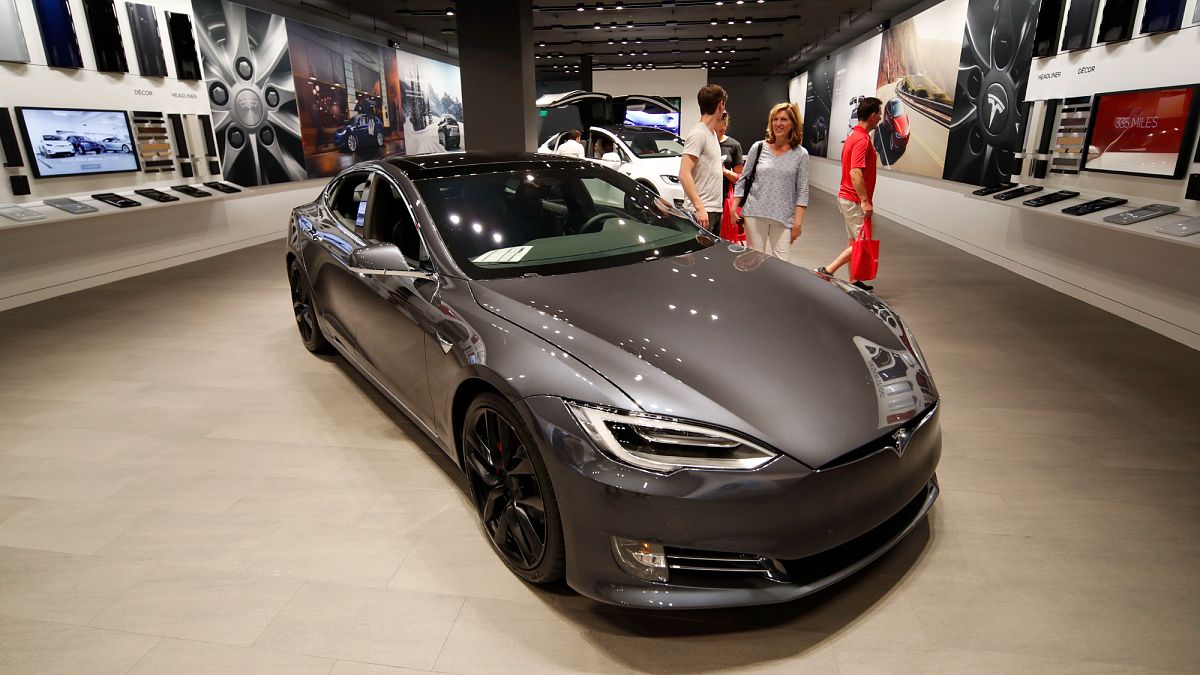Tesla’s stock plummeted 36% in the first quarter amid backlash over CEO Elon Musk’s political interventions, intensifying global competition, and a weakening EV market. Analysts expect Tesla’s car deliveries to fall to a one-year low when it reports its latest figures later today.
Tesla is set to release its first-quarter car delivery figures on Wednesday, with analysts predicting a sharp decline in sales due to CEO Elon Musk’s political controversies, a slowdown in the electric vehicle (EV) market, and growing competition.
Tesla’s share price fell 36% in the first quarter, erasing approximately $460 billion in market value and wiping out all gains since the US election day. Speaking at a town hall event in Wisconsin, Musk remarked, “It’s costing me a lot to be in this job,” referring to his government position as the head of the Department of Government Efficiency (DOGE). On Monday, US President Donald Trump suggested that Musk’s tenure in government may soon end, as he is expected to return to running his companies full-time.
Tesla’s car sales get backlash from Musk’s political intervention
Tesla’s sales appear to have suffered from Musk’s political involvement both domestically and internationally.
Sales in Europe saw a sharp decline following Musk’s endorsement of Germany’s far-right party, Alternative for Germany (AfD). According to the European Automobile Manufacturers’ Association (ACEA), Tesla sold 19,046 cars in Europe during the first two months of the year, a 49% drop from the same period last year. In contrast, overall EV sales in the European Union grew by 28.4%, with EVs accounting for a 15.2% market share.
In China, Tesla’s shipments fell to 30,688 in February, down 49% year-on-year and nearly halving from January’s 63,238, according to data from the China Passenger Car Association (CPCA). Meanwhile, new energy vehicle sales in China surged to 840,000 units in the same month, an 82% increase from the previous year.
On a positive note, Tesla’s domestic sales in the US were higher in the first two months of 2024 compared to the same period last year. Furthermore, Trump’s planned auto tariffs are expected to have a limited impact on Tesla, as all vehicles and components sold in the US are produced domestically.
However, Musk’s role in cutting thousands of federal jobs has sparked backlash against Tesla, with reports of showrooms and charging stations being vandalised in recent weeks.
A Bloomberg survey indicates that analysts now expect Tesla to deliver 390,000 vehicles in the first quarter, down from Wall Street’s previous estimate of 460,000. If confirmed, this would mark Tesla’s lowest quarterly delivery figure in a year.
It is worth noting that Tesla’s sales have historically been lower in the first quarter due to seasonal factors. In Shanghai, Tesla temporarily suspended part of its production lines for about three weeks during the Chinese New Year to upgrade its Model Y production. Nonetheless, the world’s largest EV maker may struggle to meet Musk’s target of achieving year-on-year growth in 2025 if the trends persist.
Growing competition from Chinese rivals
Tesla is facing increasing competition from Chinese car manufacturers, particularly BYD, which has been eroding its market share.
BYD reported an annual revenue of 777 billion yuan (€99 billion) in 2024, a 29% year-on-year increase, surpassing Tesla’s revenue of just over €90 billion. The Chinese automaker sold 1.76 million EVs last year, compared to Tesla’s 1.79 million. However, BYD’s hybrid vehicle sales reached 4.3 million globally, significantly outpacing Tesla’s pure EV sales.
Last month, BYD unveiled its new Super e-Platform technology, which allows EV batteries to charge in just five minutes for a driving range of 400 kilometres. The company also announced a partnership with DeepSeek to advance its autonomous driving technology. The news unsettled Tesla investors, triggering a sharp selloff in its shares. BYD’s stock has surged 48% so far this year, while Tesla’s shares have plunged 31%.

